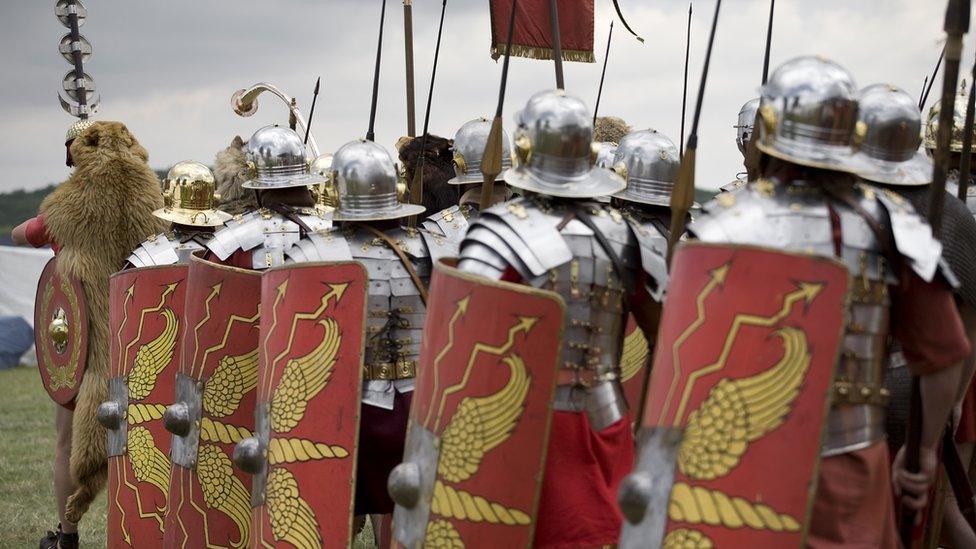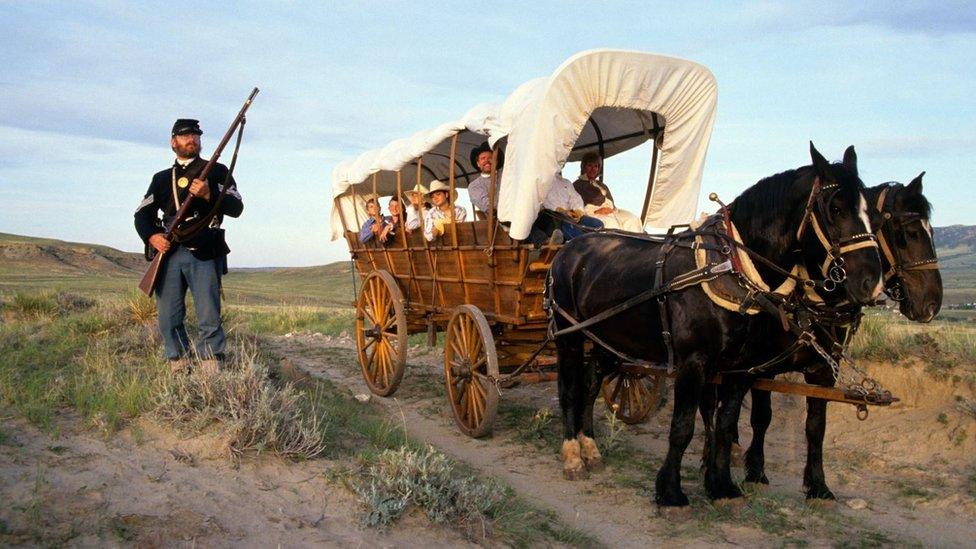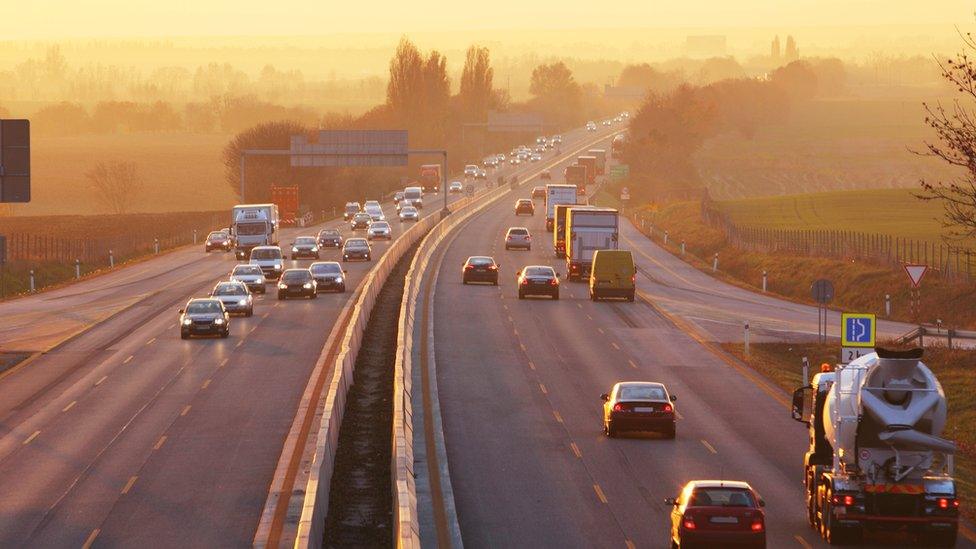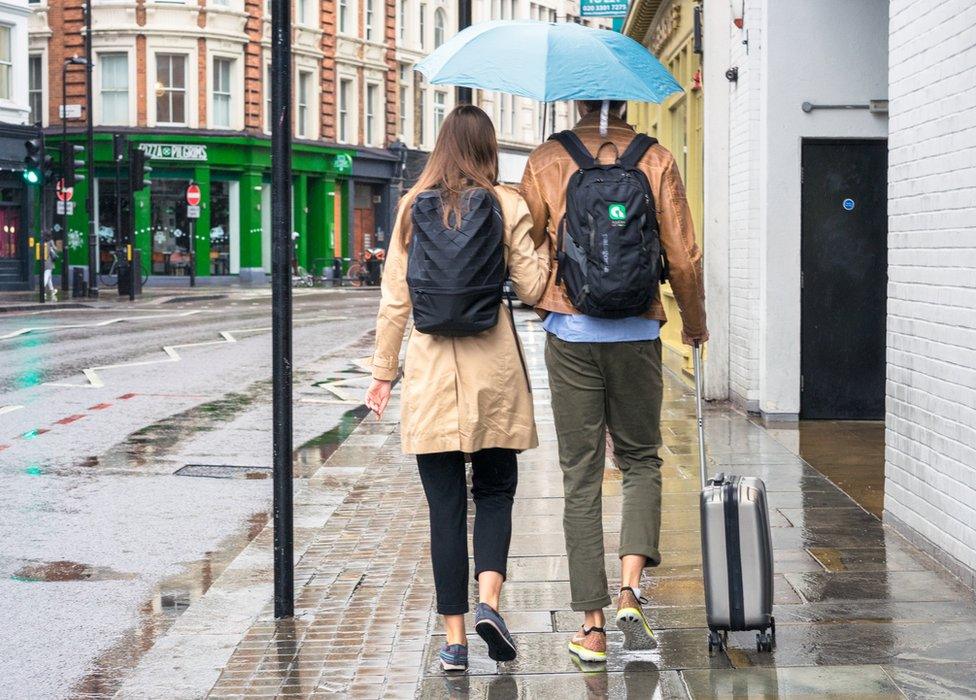Driving in the UK: Your questions answered
- Published
How did the French Revolution influence driving on the Continent?
Why does the UK drive on the left? This was just one of the motoring mysteries our readers asked us about. Here are the answers.
Why does the UK drive on the left?
Gareth Edmunds, 59, from Bristol, said he was curious as his family hosts English language students from all over the world.
"As I drive them around I hear them wince as they see an oncoming car to our right and think we're going to crash - it's a question that always crops up," he said.
"My pet theory is that it's something to do with times gone by when if you met a stranger on the road you'd pass on the left so your weapon arm was on their side."

The convention of driving on the left is thought to date back to Roman times
Mr Edmunds' theory is one shared by Stephen Laing, curator of the British Motor Museum in Warwickshire. He said it dated back to Roman times.
"Most people are right handed, naturally mount a horse from the left and so need their right hand free for combat," he said.
"Roman armies marched on the left hand side of the carriageway and this is a convention that stayed."
Motoring author Giles Chapman said Britain's Highway Act of 1835 enshrined driving on the left in law for this country and its colonies.
"The rule was exported, for example, to Japan, where British engineers planned its railways to drive on the left, leading to a similar edict for road vehicles."
Why do some other countries drive on the right?
Richard Mace, 63, who lives near Chatham in the south-east of England, said he had always been curious as to why they drive on the right in the US.
"The reason I have been given goes back to when wagons were drawn by oxen," he said. He could be on the right track.
In the late 1700s wagons pulled by horses arranged in pairs became increasingly popular, Fraser McAlpine wrote for BBC America., external
The driver sat on the back of the rear left-hand horse, to whip the others right handed.
The best way for one wagon to pass another without banging wheels was the right hand side of the road, according to McAlpine.

Conestoga wagons were driven on the right in America to avoid banging wheels with passing traffic
What would it cost to convert the UK to drive on the right?
The government examined such a plan in 1969, two years after Sweden switched to driving on the right.
Its report rejected the idea on grounds of safety and costs. , external
In 1969, the financial burden of making the switch was calculated by the government to be £264m.

There are no plans to switch to driving on the right, the Department for Transport said
That equates to about £4bn in today's money. But given the huge advances in infrastructure since 1969 this would now be an extremely conservative estimate.
Stephen Laing, curator at the British Motor Museum, said he could not see Britain swapping sides.
"I think we are kind of set in our ways," he said. "The infrastructure is built around driving on the left hand side. I can't really see that changing in the future."
The Department for Transport said: "We do not have a policy on this because it's not something we are interested in at this time."

More on UK driving:

Why do we drive on the left but walk on the right?
The Highway Code's Rules for Pedestrians, external advise that where there is a pavement "avoid being next to the kerb with your back to the traffic."

The code goes on to advise: "If there is no pavement, keep to the right-hand side of the road so that you can see oncoming traffic."
And when it comes to pavements, as the BBC's home editor Mark Easton wrote, "the British have little sense" of etiquette, "preferring a slalom approach to pedestrian progress".
- Published18 July 2014